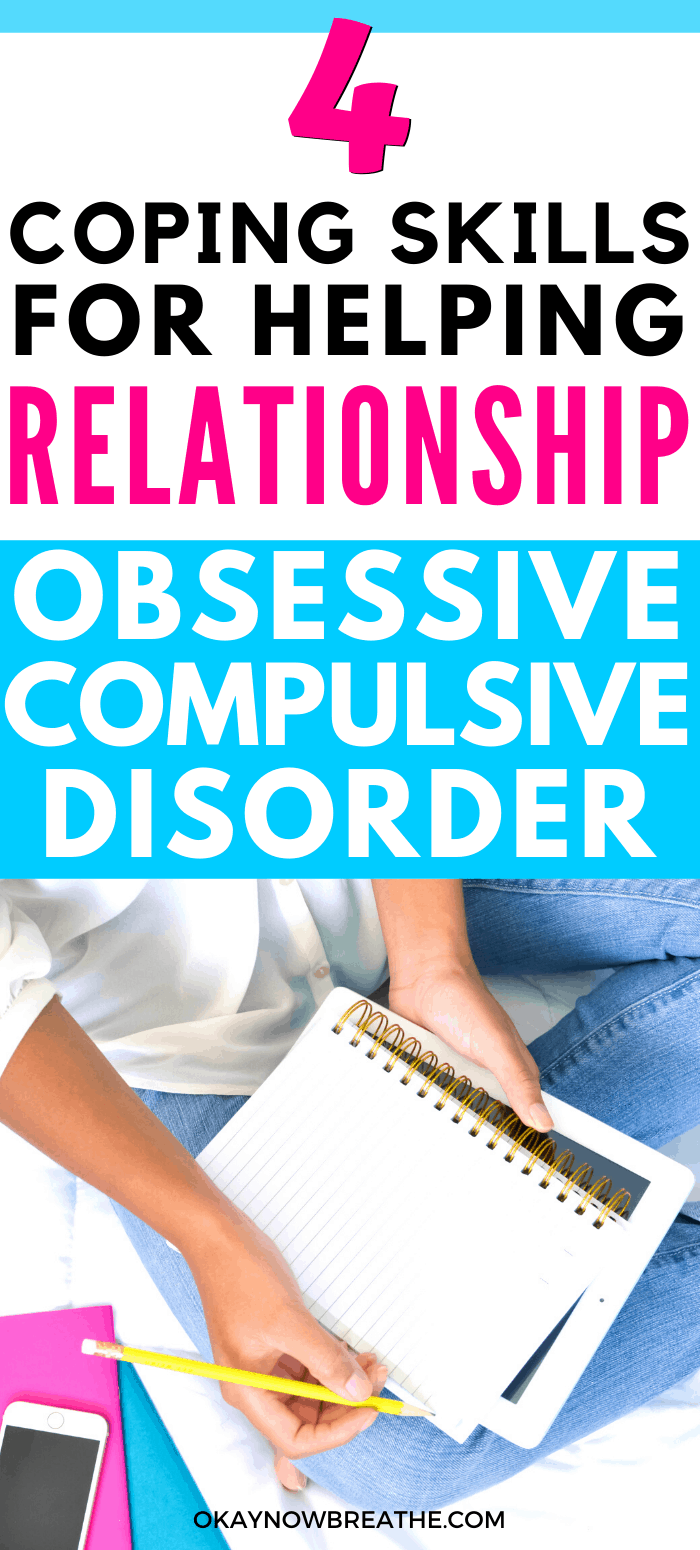
DISCLOSURE: I am not a mental health professional. If you need help finding a mental health care provider, call 1-800-662-HELP (4357) or visit Online Therapy to call, message, or video chat a certified therapist online. This post contains affiliate links. As an Amazon Associate, I earn from qualifying purchases. I may also receive compensation from Online Therapy or other sources if you purchase products or services through the links provided on this page. You can read my full disclaimer.
Back about six years ago, I had no idea what Relationship OCD was, let alone how to help myself cope with it.
It wasn’t until my relationship was being negatively affected by my obsessive thoughts that I realized what I was going through wasn’t healthy.
That’s when I discovered ROCD.
What is Relationship OCD?
ROCD can manifest itself in countless, unique ways.
But the main concept is there are obsessions and compulsions that essentially run on a neverending loop.
OBSESSIONS
Obsessions in OCD are defined as repetitive unwanted, intrusive, and inappropriate thoughts, ideas, mental images, or impulses that someone experiences.
Examples:
- Fixation on the flaws of your partner’s appearance
- Fixation on the compatibility with your partner
- Constant visualizing of your partner with their exes
- Obsession with negative aspects of your partner’s character
- “What if I don’t really love my partner?”
COMPULSIONS
Compulsions in OCD are defined as repetitive behaviors that someone feels compelled to perform in an effort to avoid or decrease anxiety related to obsessions.
There are several types of compulsions, such as overt, mental, reassurance-seeking, and avoidant compulsions.
Examples:
- Repeatedly confessing to your partner that you are experiencing doubts about your feelings
- Comparing your relationship to other people’s relationships in friends, family, strangers
- Constantly asking your partner how they feel about you
- Avoiding places, activities, objects from your partner’s past relationships
The problem with performing these compulsions is that it further increases the pathway of OCD in your brain.
You can find more about ROCD in my post: Relationship OCD and the Fantasy of Finding The One.
Talking About Relationship OCD
It’s always very painful for me to get through a post about Obsessive Compulsive Disorder.
As soon as I start thinking about my OCD, my obsessions and compulsions only seem to intensify.
I hate my brain when my ROCD is acting up, because it’s like I’m trying to fight a battle I can never win.
It’s incredibly frustrating, and sometimes it feels like I’ll never get any better.
Sometimes, I feel like there is no hope for this debilitating mental illness.
However, these next four tips have helped me the most in my recovery with OCD. My hope is that they’ll help you too.
4 Coping Mechanisms That Help My Relationship OCD
1. ATTEND THERAPY
Therapy can be a crucial part in managing your OCD.
Talking to someone who is experienced with what you’re struggling with can make all the difference.
Did you know there’s online therapy?
Online Therapy is a complete online therapy toolbox.
Your therapy toolbox includes:
-
- Live video, voice, or text chat session with your therapist
- 8 easy-to-follow sections, including 25 worksheets
- Activity plan, journal, and tests
- Yoga and meditation videos
What I love about Online Therapy is that there are several life-changing options and therapists available, and you don’t even have to leave the comfort of your home.
This means you never need to worry before getting help.
Get 20% off your first month with my exclusive link.
2. LISTEN TO AUDIOS
Excel at Life has made the biggest impact on my life in my recovery.
They have the best audios I’ve ever heard. Seriously, I can’t say enough good things about them.
All of their audios are cognitive therapy based with a focus on mindfulness, and they’re incredibly eye-opening and life-changing.
Back when my OCD was at it’s worse, I listened to them multiple times a week, and I noticed a significant change in my way of thinking and thought processes.
They have several OCD audios, as well as articles you can read alongside them.
Excel at Life also has audios about other anxiety disorders and mental illnesses, like depression.
You can listen to them from a couple different Android apps (only available on Android), or you can listen to them from the internet here.
Related post:
3. SELF-HELP BOOKS
The only OCD self-help book I’ve read so far has been The Mindfulness Workbook for OCD, but it has been a tremendous help.
The book covers several different types of OCD ranging from checking to relationship OCD.
Its approach is cognitive-behavioral therapy-based, but it’s written in a very compassionate and warm tone that makes you feel more at ease.
You can go at your own pace, which I think is sometimes better than your traditional therapy.
I also love that you can write right in the book, so you can go back and check your progress.
I’m definitely going to try more OCD self-help books in the future, but I’m taking my recovery one step at a time. Recovery is definitely not a race.
Related post:
4. TALK TO MY BRAIN
Whenever you begin to obsess over something, you’re creating new pathways in your brain.
And whenever you give in to your obsessions by doing a compulsion, you’re only furthering that pathway.
A compulsion is only a temporary relief to a much bigger problem.
Instead of trying to give in to my obsessions and compulsions, I try to talk back against my ROCD.
I’ll say these phrases in my head:
- These are just thoughts. I don’t have to listen to them.
- This is just my OCD. I don’t need to give in to it.
- I am in control of my OCD. My OCD does not control me.
Then I’ll breathe in and out slowly until the obsession is gone.
Help for Your Relationship OCD
ROCD manifests itself in countless ways, which makes coping with it that much more difficult.
Key Takeaways:
- Seek Therapy → Online Therapy is a fantastic choice
- Try Excel at Life audios
- Read through The Mindfulness Workbook for OCD
- Practice positive self-talk
What are some of the ways you cope with your OCD? Let me know in the comments below!
Related posts:
- Relationship OCD and the Fantasy of Finding “The One”
- 7 Relationship Anxiety Books and Courses to Help Your Recovery
- 8 Offensive Phrases People with OCD are Sick of Hearing
- What it’s Really Like Living with Pure Obsessional OCD
- Why Facebook and My OCD Ruined My Relationships


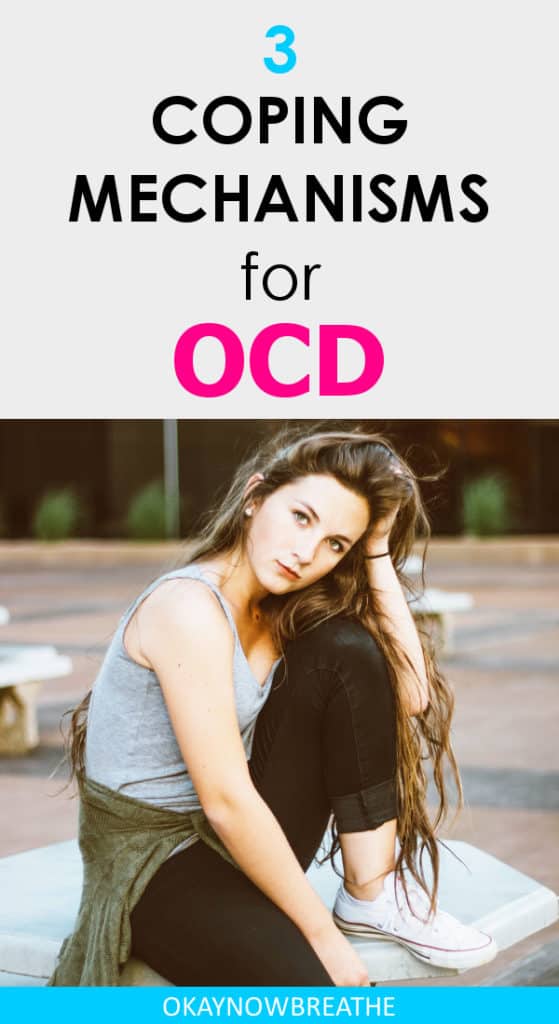
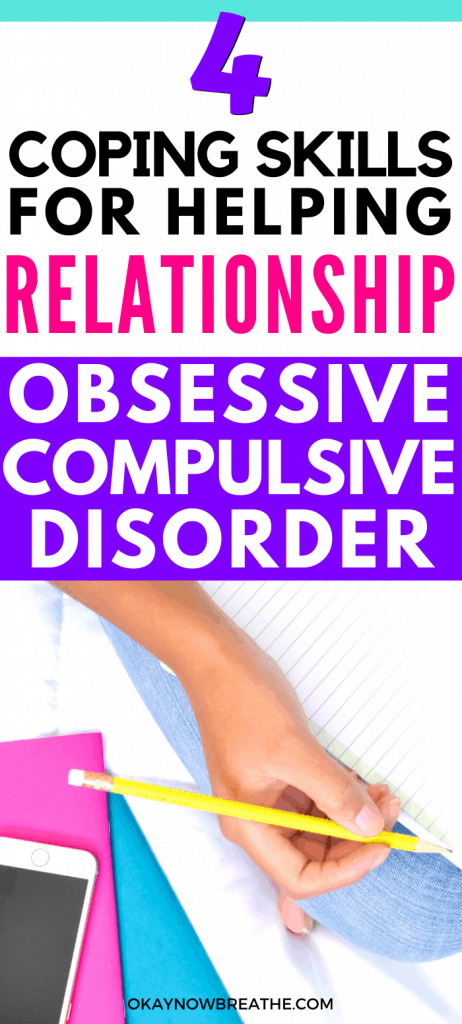
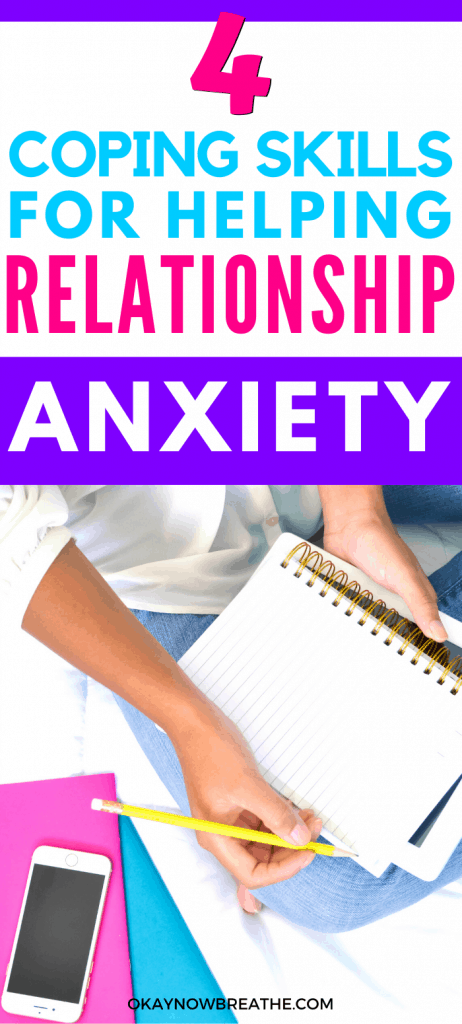
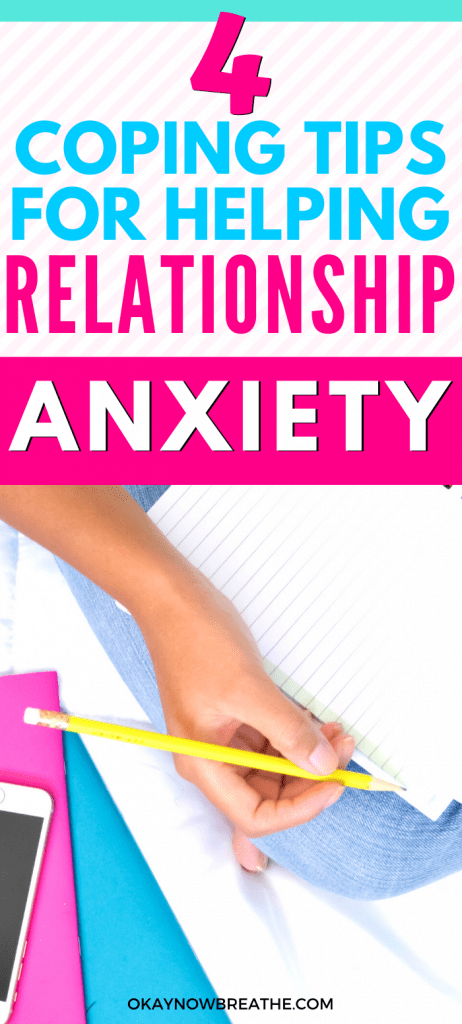
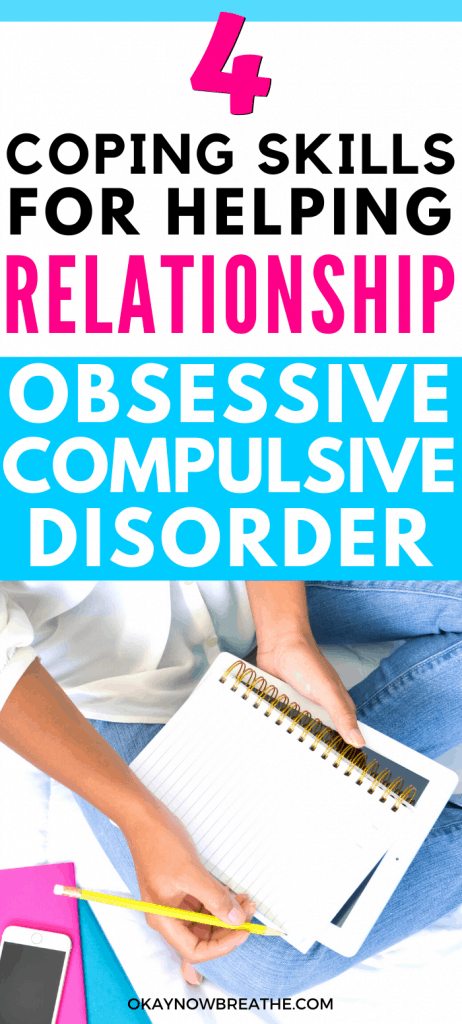

Hi! Enjoyed your post, good tips! This therapist’s vlog self-help series has helped quite a bit: https://www.patreon.com/theanxietyspecialist
It’s $3 a month, but you can watch a few of the beginning vids for free… def recommend.